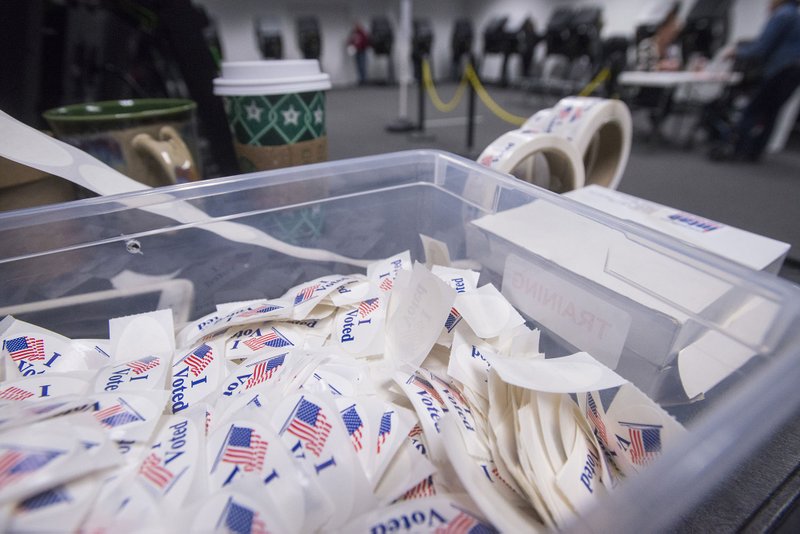A voting-rights lawsuit challenging the legality of a quartet of Arkansas election changes passed by lawmakers this year must be dismissed because there is no evidence the new laws will harm voters, state lawyers assert in a response to the month-old litigation.
Plaintiffs Arkansas United, an immigrant-advocacy group, and The League of Women Voters of Arkansas, a voter-education organization, argue the four laws targeted by the suit must be struck down as illegal, claiming they are really intended to keep poor and minority-group residents away from the ballot box or at least restrict their access to voting.
They have further called on Pulaski County Circuit Judge Wendell Griffen to bar election officials from implementing the measures.
The laws at issue are Act 249, involving voter identification; Act 728, regulating campaigning around the polls during voting; Act 736, affecting how ballots are validated; and Act 973, which sets deadlines for mail-in absentee ballots.
The laws' defenders say the measures are necessary to strengthen election integrity and improve public confidence in the system. The General Assembly passed 24 laws related to election operations this year.
Over the weekend, Republican Attorney General Leslie Rutledge filed her response to the suit on behalf of the state, outlining a four-point argument for Griffen to dismiss the lawsuit.
Rutledge's first argument is that neither of the plaintiff groups have standing to sue because they can't show they've been harmed by the new laws because the organizations are not persons to whom the challenged laws would apply. Claims that the laws will injure voters are without evidence, the attorney general's dismissal motion states.
"Their fears are speculative," Rutledge states in the 25-page response, written by Assistant Attorney General Michael Mosley.
Secondly, the state lawyers argue the suit should be dismissed because the litigation is going after the wrong defendants, Secretary of State John Thurston and the state Board of Election Commissioners. The actual defendants should be each county's election commission because those county boards are the only ones who have the authority to directly administer elections, the Rutledge pleading states.
Rutledge further disputes that the litigation can meet the standard set by the Arkansas Supreme Court to successfully challenge the constitutionality of a law.
To prove the laws are illegal, the plaintiffs must prove the laws have no "rational basis," but Arkansas courts have held for more than 20 years that Arkansas "indisputably has a compelling interest in preserving the integrity of its election process," the filing states, quoting a 2006 decision by the state's highest court involving voter-identification laws. Strengthening election integrity and preventing fraud are sufficient reasons to justify the law, Rutledge asserts.
Rutledge also asserts sovereign immunity prohibits the litigation from succeeding because state courts are barred by the Arkansas constitution from controlling state operations, except in narrow circumstances that involve proven illegal activity by state actors.
